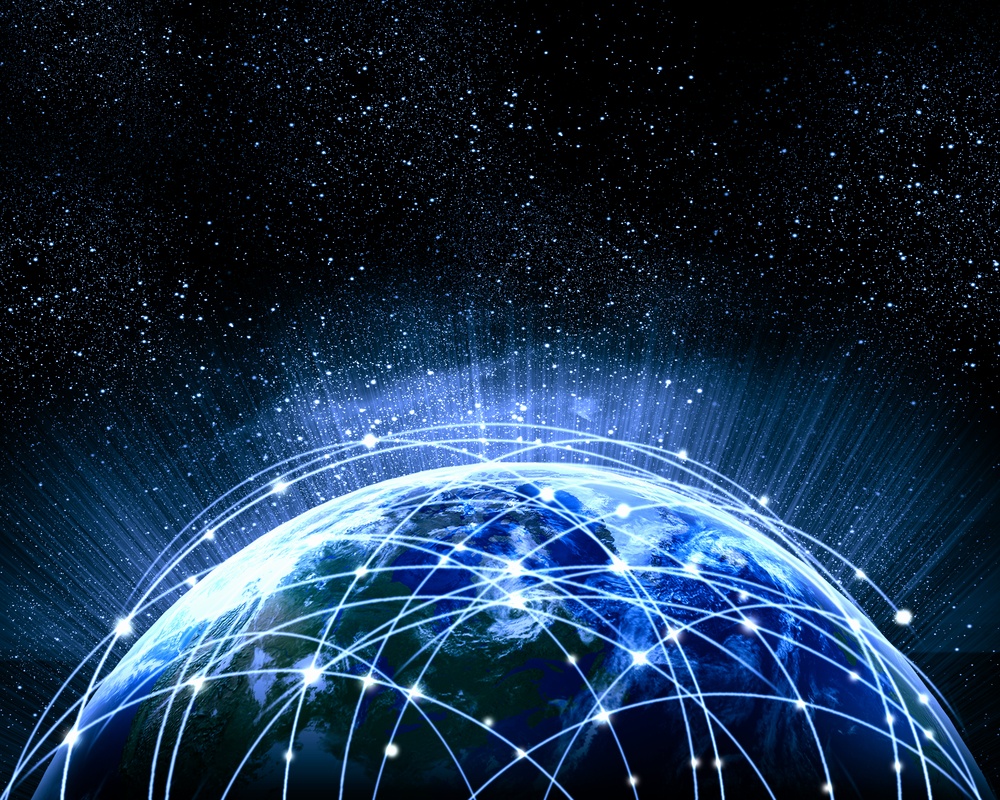
Dan Botterill, CEO of Ditto Sustainability, explains how Artificial intelligence (AI) can help towards achieving a more circular economy.
The 4th Industrial revolution conjures imagery of all kinds of technology adaptations and evolutions; driverless cars, the Internet of Things (IoT), robotics and AI – the last of which underpins many applications in this area. The wide scale adoption of AI massively divides opinion. The inability of machine learning and probabilistic AI technologies to ‘self account’ or ‘explain’ how they have reached their conclusions is a very prominent concern for many, particularly those writing the law...
Some camps, led by highly respected scientists and industrialists, are extremely cautious about AI and the potential perils, taking this cynicism one step further. Less driverless cars, more Terminator-style complete species annihilation. The fear being that once machines evolve to a point where they are more intelligent than humans – will they see the need for this parasitic, wasteful organism?
This is clearly not a suitable vision for the use of technology to drive a circular, sustainable society! And here lies the dilemma on an existential level. Will the machines destroy us or will they save us? It seems hard to theorise a happy medium.
AI will help the world be more circular and sustainable
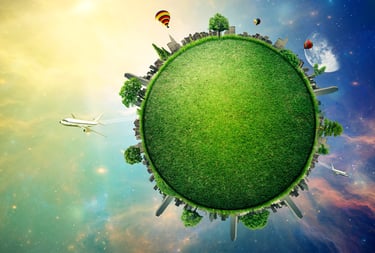 I believe that AI offers enormous potential in terms of making the world more circular and sustainable. At the forefront of this thinking is applying AI to help businesses and individuals manage resources in a more efficient, sustainable and compliant manner ie driving circularity.
I believe that AI offers enormous potential in terms of making the world more circular and sustainable. At the forefront of this thinking is applying AI to help businesses and individuals manage resources in a more efficient, sustainable and compliant manner ie driving circularity.
A key opportunity is to harness the considerable processing power of AI to better collate, analyse and interpret complex environmental data and information to understand the issues and prioritise action.
More important, however, is the opportunity to use AI as a platform to democratise sustainability knowledge, enabling us to drive changes in our own behaviour that benefit the planet now and for future generations.
When we talk about the circular economy we often think about waste management and recycling; food waste, single use plastics, packaging and straws. But the circular economy is not simply a waste issue; a circular economy is very much a sustainable economy.
We should also be thinking about renewable energy, water stewardship, social responsibility, design for longevity, upgrading and disassembly. We should be involving our workforce and communities in our economic cycles. AI is here to help.
The new world
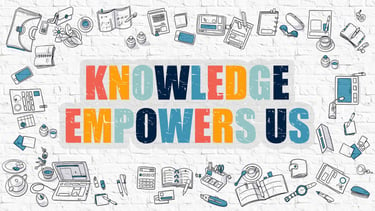 We don’t often talk about using AI to drive the democratisation of knowledge. By this, we mean making knowledge more accessible to everyone. AI will play a crucial role in our evolution to be a more progressive and sustainable society through its ability to package and deliver expert knowledge on an unprecedented scale.
We don’t often talk about using AI to drive the democratisation of knowledge. By this, we mean making knowledge more accessible to everyone. AI will play a crucial role in our evolution to be a more progressive and sustainable society through its ability to package and deliver expert knowledge on an unprecedented scale.
The current system is broken. Few people hold the knowledge and accessing this knowledge costs too much and is inefficient. That’s the old world and that must change.
In the new world, we will all possess the knowledge to contribute to sustainability. Technology allows the spread of knowledge without borders. The online delivery of information helps us to avoid travel, reduce costs, ensures everyone gets the messages, and can be updated with ease and continually.
The AI in SustAInability
 Technology is a great tool for democratisation of knowledge and processes. It’s also potentially very disruptive. AI can now digitise many expensive professional processes, for example, medicine, law, tax advice and accountancy.
Technology is a great tool for democratisation of knowledge and processes. It’s also potentially very disruptive. AI can now digitise many expensive professional processes, for example, medicine, law, tax advice and accountancy.
This is particularly pertinent in the subset of AI called Expert Automation and Augmentation Software (EAAS). These types of programmes and systems will have a considerable role to play and could be highly disruptive to current business, especially professional services.
From our perspective at Ditto Sustainability, I believe this technology can be utilised to transform the environmental and sustainability consulting sector as we know it.
Our goal is to use AI to harness the expertise of sustainability leaders and visionaries and make it more cost effective, inspirational and accessible for people to use and share. Knowledge that will enable us to implement cleaner technologies, understand complex regulatory drivers, data trends and analysis.
We can put sustainability knowledge into the hands of business and consumers, giving greater reach and scalability to the advice and knowledge businesses need to improve. It will be a revolution in the way we operate a business, ensure it is compliant, improve our employees’ engagement and supply chain performance as well as influence and collaborate with our customers.
Using AI to improve data management, compliance and transparency
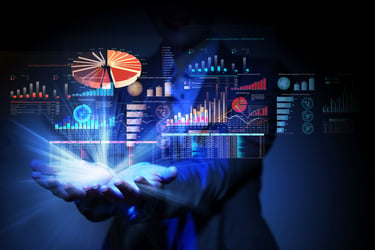 Sustainability data is complicated. It comes from many different sources and varies dramatically in quality. AI will help us collate wide-ranging data into easily comparable data sets. It will help us automatically analyse and interpret vast quantities of information, identifying anomalies and delivering sound recommendations. It will also help us to automate all our sustainability, CSR (Corporate social responsibility) and ESG (Environmental, social and governance) reporting requirements.
Sustainability data is complicated. It comes from many different sources and varies dramatically in quality. AI will help us collate wide-ranging data into easily comparable data sets. It will help us automatically analyse and interpret vast quantities of information, identifying anomalies and delivering sound recommendations. It will also help us to automate all our sustainability, CSR (Corporate social responsibility) and ESG (Environmental, social and governance) reporting requirements.
AI in a sustainability analytics context can also be highly useful from a compliance perspective. For example, if I buy imported products, I can use compliance tools to ensure the supplier meets my sustainability criteria: slave labour, gender equality, work place quality, water pollution, GHG (greenhouse gas) emissions, renewable energy use, organic farming, waste management, and so on.
Putting sustainability into the core of my business drives sustainability around it too. Technology enables transparency and helps to force companies to change. As a company can see its supply chain, so consumers can see how companies are behaving. They can pressure companies to drive change, pressure leadership, push from bottom up.
This is the use of technology to drive the Circular Economy. And I can do this with continuous real-time monitoring.
We will empower the ethical consumer through technology. But is technology enough to make change happen or is what we really need legislation?
Will voluntary engagements like the Plastics Pact really lead to 70% recycling by 2025? Or do we need obligatory targets and penalties?
Conclusions
4IR will be instrumental in driving a circular economy, particularly AI. However…
- We must ensure technological solutions are accountable and can explain their analysis and recommendations.
- The new age of transparency and accountability must be adopted at corporate levels for us to take meaningful action as consumers.
- We need better legislation but this will be worthless if the authorities do not provision effective enforcement.
Ultimately our vision as a business is to use AI and best available technologies to make the acquisition and deployment of sustainability knowledge more scalable. So we’ve established our own three pillars in terms of how we utilise AI in the form of learning, compliance and data management platforms.

This article originally appeared on Letsrercycle.com, August 2018

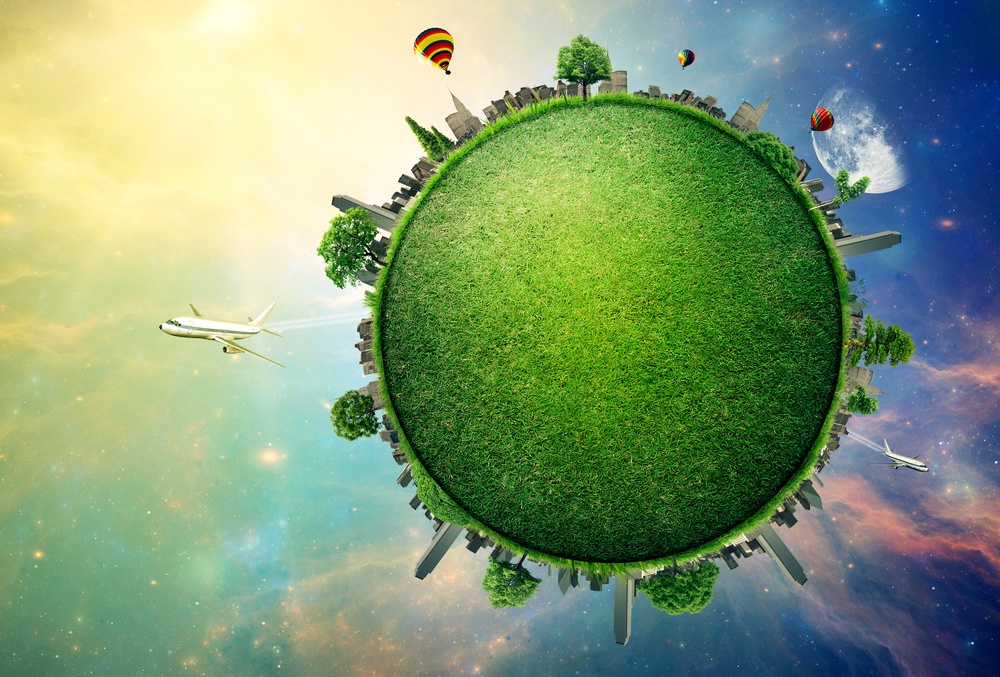


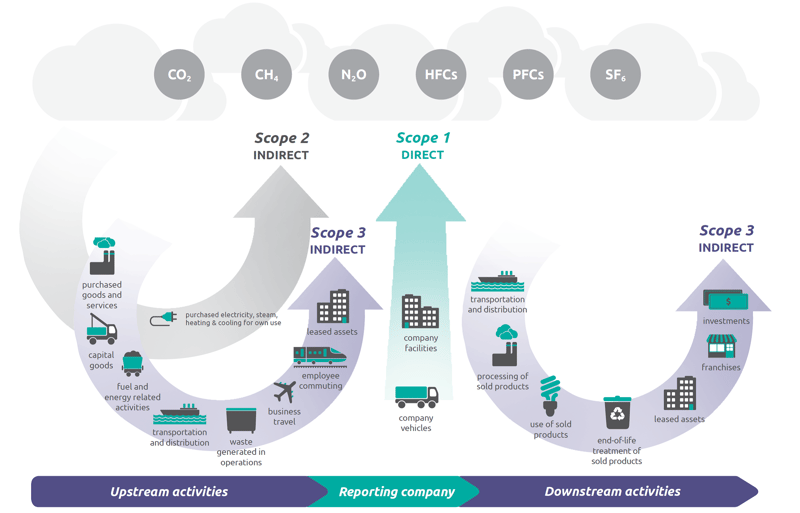





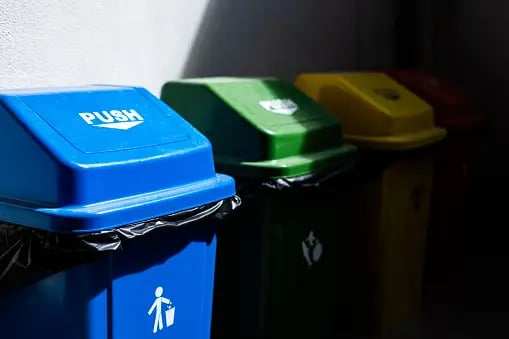

 I believe that AI offers enormous potential in terms of making the world more circular and sustainable. At the forefront of this thinking is applying AI to help businesses and individuals manage resources in a more efficient, sustainable and compliant manner ie driving circularity.
I believe that AI offers enormous potential in terms of making the world more circular and sustainable. At the forefront of this thinking is applying AI to help businesses and individuals manage resources in a more efficient, sustainable and compliant manner ie driving circularity. Technology is a great tool for democratisation of knowledge and processes. It’s also potentially very disruptive. AI can now digitise many expensive professional processes, for example, medicine, law, tax advice and accountancy.
Technology is a great tool for democratisation of knowledge and processes. It’s also potentially very disruptive. AI can now digitise many expensive professional processes, for example, medicine, law, tax advice and accountancy. Sustainability data is complicated. It comes from many different sources and varies dramatically in quality. AI will help us collate wide-ranging data into easily comparable data sets. It will help us automatically analyse and interpret vast quantities of information, identifying anomalies and delivering sound recommendations. It will also help us to automate all our sustainability, CSR (Corporate social responsibility
Sustainability data is complicated. It comes from many different sources and varies dramatically in quality. AI will help us collate wide-ranging data into easily comparable data sets. It will help us automatically analyse and interpret vast quantities of information, identifying anomalies and delivering sound recommendations. It will also help us to automate all our sustainability, CSR (Corporate social responsibility